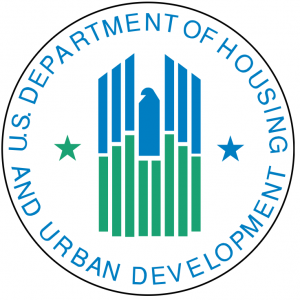Along with the social justice aspects of fostering diversity in real estate, it makes sense from a financial standpoint as well.
Along with the novel coronavirus, diversity and inclusivity are among the most notable social topics of the 21st century. Our world and its 7.6 billion inhabitants are more diverse than ever, yet inequality and racial discrimination are unfortunately rampant, in various forms. The real estate industry is no exception.
In fact, the problem of inequality exists within virtually every facet of real estate, including buyers, sellers, and realtors alike. Minority groups are especially underrepresented among licensed real estate agents: according to the National Association of Realtors (NAR), in 2017, only 20% of their membership identified as a race other than white.
This obvious lack of inclusivity can serve as a roadblock for many prospective property buyers, who may not feel represented by real estate professionals. While on the surface the law seems to favor minority buyers, who are protected by the Fair Housing Act, the reality is much more complex. Indeed, the United States Department of Justice claims “discrimination in housing continues to be a problem” within the national real estate market as a whole. What’s more, various forms of so-called “hidden discrimination” exist as well, especially in regards to race.
As housing inequality is a systemic problem, what can be done? Let’s take a look at how we got here, and whether our nation’s courts will need to intervene to help stem the continued lack of diversity in housing and real estate.
The Face of Modern Real Estate
The Fair Housing Act, passed in 1968 as part of the Civil Rights Act, prohibits discrimination by various housing providers, including realtors and financial lending institutions, on the grounds of race, color, religion, sex, and more. Those who believe that they were unfairly discriminated against during a housing search may choose to seek legal recourse. For instance, an individual can make an official complaint to the Department of Housing and Urban Development (HUD), or he or she can even elect to file a lawsuit.

In seeking legal recourse for alleged housing discrimination, the affected individuals may directly name sellers and/or real estate agents in the lawsuit or complaint. And it should be noted that a full 87% of home buyers purchase their property with the assistance of a real estate agent or broker. If a real estate deal doesn’t go through, and the prospective buyer believes that discrimination was a factor, they may determine that their real estate agent is liable for some of the damages.
Embracing Diversity on a Large Scale
The issue of inequality in real estate is so prolific that industry leaders have begun to speak out in recent years. Along with a lack of opportunity for minority home buyers, the world of commercial real estate is also woefully lacking, reports Collete English Dixon, executive director of the Marshall Bennett Institute of Real Estate at Chicago’s Roosevelt University. Further, the coronavirus pandemic, and subsequent economic recession, only serves to compound the problem.
“This recession will make it harder on Blacks and people of color because it’s just the way the system has been,” English Dixon told Nareit in September 2020. Yet she also believes that there are big changes on the horizon, with social justice as the catalyst. By hiring a more diverse set of professionals on the seller and broker end of the industry, equality in the realm of real estate may be achievable soon.
From both a legal and social justice standpoint, therefore, real estate management companies should prioritize diversity in their hiring processes and company culture. Cultivating an inclusive, dynamic workplace culture is likely to result in fewer legal road bumps, as well as greater employee retention, productivity, and overall satisfaction. Additionally, those traits are likely to trickle down to a real estate company’s customer base.
At the Intersection of Diversity and Economics
On a systemic level, diversity and equal opportunity in the workplace connects to virtually every aspect of life, including fair access to housing and real estate investment opportunities. Diversity is now directly intertwined with a business’ bottom line, impacting its financial future, for better or for worse. Real estate investors who fail to diversify their business practices may miss out on revenue and expansion opportunities. But it is the legal ramifications of inequality that are the costliest to a real estate company or an independent broker.
Along with the social justice aspects of fostering diversity in real estate, it makes sense from a financial standpoint as well. With penalties that could include fines, attorney fees, and punitive damages, housing discrimination lawsuits are a costly endeavor for everyone involved. Indeed, a lawsuit can make or break a fledgling real estate company, especially when the plaintiff has due cause for recourse on the grounds of discrimination.
Key Takeaways
Brokers and realtors who are on the receiving end of a HUD discrimination complaint or similar lawsuit may lose customers and gain an unsavory reputation. But the real damage is an overarching, societal one, wherein minority populations have fewer opportunities, whether they aspire to become a licensed real estate professional or first-time homebuyer.


Join the conversation!